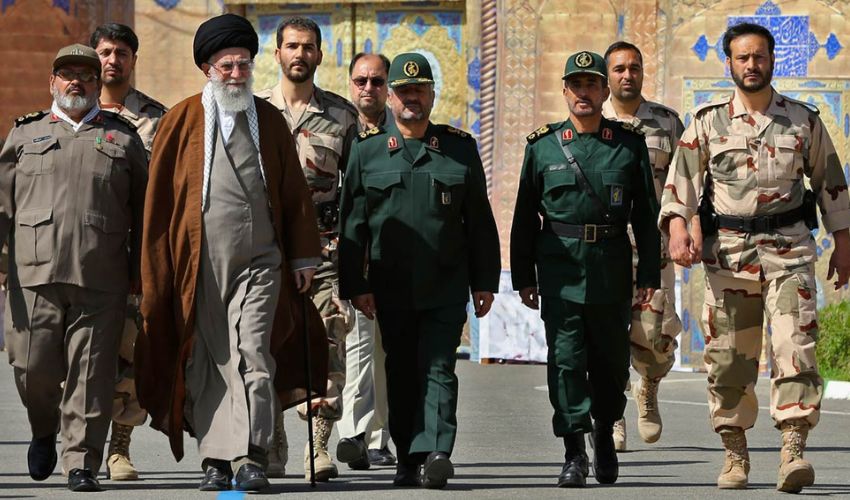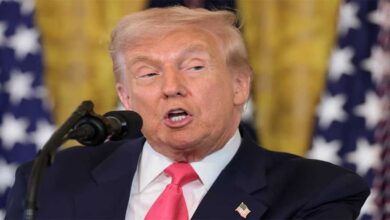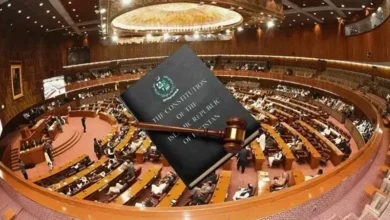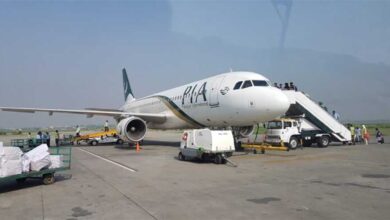TEHRAN: Iran’s Revolutionary Guards have tightened their grip on the country’s oil industry and control up to half the exports that generate most of Tehran’s revenue and fund its proxies across the Middle East, according to Western officials, security sources and Iranian insiders.
All aspects of the oil business have come under the growing influence of the Guards, from the shadow fleet of tankers that secretively ship sanctioned crude, to logistics and the front companies selling the oil, mostly to China, according to more than a dozen people interviewed by Reuters.
The extent of the Islamic Revolutionary Guard Corps’ (IRGC) control over oil exports has not previously been reported.
Despite tough Western sanctions designed to choke Iran’s energy industry, reimposed by former U.S. President Donald Trump in 2018, Iran generates more than $50 billion a year in oil revenue, by far its largest source of foreign currency and its principal connection to the global economy.
Six specialists – Western officials and security experts as well as Iranian and trading sources – said the Guards control up to 50% of Iran’s oil exports, a sharp increase from about 20% three years ago. The sources declined to be identified due to the sensitivity of the matter.
Three of the estimates were based on intelligence documents about Iranian shipping while others derived their figures from monitoring shipping activity by tankers and companies linked to the IRGC. Reuters was unable to determine the exact extent of the IRGC’s control.
The aim, the startup that came up with it says,
The IRGC’s growing domination of the oil industry adds to its influence in all areas of Iran’s economy and also makes it harder for Western sanctions to hit home – given the Guards are already designated as a terrorist organisation by Washington.
Trump’s return to the White House in January, however, could mean tougher enforcement of sanctions on Iran’s oil industry. The country’s oil minister said Tehran is putting measures in place to deal with any restrictions, without giving details.
As part of their expansion in the industry, the Guards have muscled in on the territory of state institutions such as the National Iranian Oil Company (NIOC) and its NICO oil trading subsidiary, according to four of the sources.
When sanctions hit Iran’s oil exports years ago, the people running NIOC and the wider industry were specialised in oil rather than how to evade sanctions, added Richard Nephew, a former deputy special envoy for Iran at the U.S. State Department.
“The IRGC guys were much, much better at smuggling, just terrible at oil field management, so they began to get a larger control of oil exports,” said Nephew, who is now a researcher at Columbia University.
The IRGC, NIOC, NICO and Iran’s foreign ministry did not respond to requests for comment.
RISK APPETITE
The IRGC is a powerful political, military and economic force with close ties to Supreme Leader Ayatollah Ali Khamenei.
The Guards exert influence in the Middle East through their overseas operations arm, the Quds Force, by providing money, weapons, technology and training to allies Hezbollah in Lebanon, Hamas in Gaza, Yemen’s Houthis and militias in Iraq.
While Israel has killed a number of senior IRGC commanders over the past year, the oil specialists in its ranks have been able to continue their operations, two Western and two Iranian sources said.
The Iranian government began allotting oil, instead of cash, to the IRGC and Quds Force around 2013, according to Nephew.
The government was under budgetary pressure then because it was struggling to export oil due to Western sanctions imposed over Iran’s nuclear programme.
The IRGC proved adept at finding ways to sell oil even under sanctions pressure, said Nephew, who was actively involved in tracking Iranian oil activities then.
Iranian oil revenues hit $53 billion in 2023 compared with $54 billion in 2022, $37 billion in 2021 and $16 billion in 2020, according to estimates, opens new tab from the U.S. government’s Energy Information Administration.
This year, Tehran’s oil output has topped 3.3 million barrels per day, the highest since 2018, according to OPEC figures, despite the Western sanctions.
China is Iran’s biggest buyer of oil, with most going to independent refineries, and the IRGC has created front companies to facilitate trade with buyers there, all the sources said.
Oil export revenues are split roughly evenly between the IRGC and NICO, said one source involved in Iranian oil sales to China. The IRGC sells oil at a $1-$2 barrel discount to prices offered by NICO because buyers take a bigger risk buying from the Guards, the person said.
“It depends on a buyer’s risk appetite, the higher ones will go for the IRGC, which the U.S. designates as a terrorist group.”











